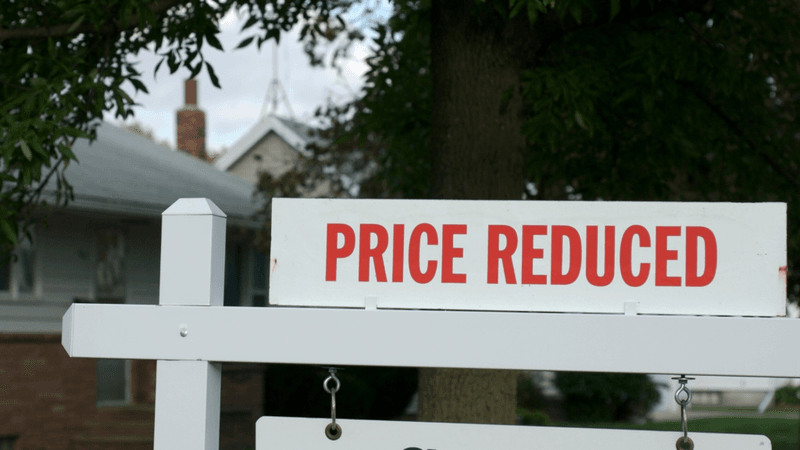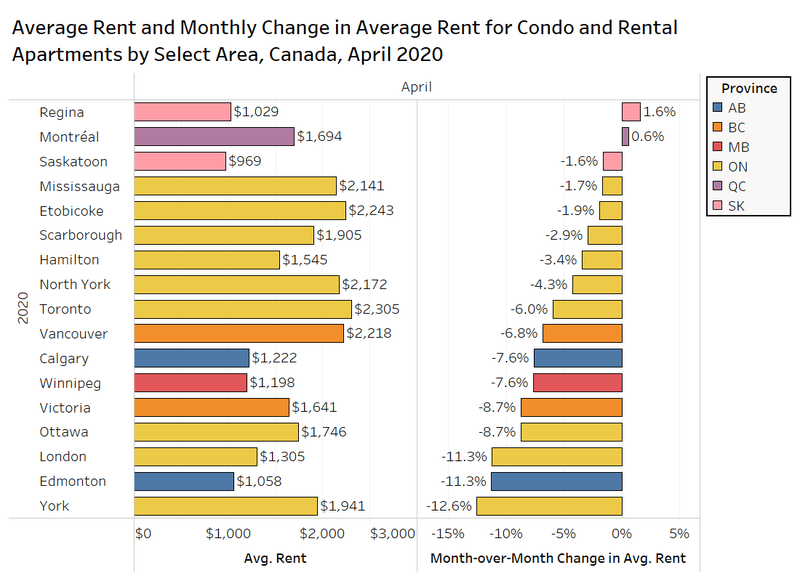How COVID-19 Has Affected Rental Prices in Canada
With the rise in unemployment, a decrease in tourism, lack of immigration, and the overall economic slump the COVID-19 pandemic has caused, many have wondered how exactly will this affect the rental market in Canada.

Covid-19: Rental Trends
A recent report by Rental.ca has shed light on COVID-19’s impact on the rental market. The report states that average rental prices for all property types in Canada have seen a decline, with rental prices for apartments and condos dropping 3.2% to 4.6% from March to April.
Even major cities like Vancouver, Toronto, Ottawa, and Calgary have experienced this decline in rental prices. In fact, Alberta, Ontario, Manitoba, and Nunavut have exhibited the largest declines in average rental prices. Average rental prices dropped by:
- 5.7% in Alberta
- 4.6% in Ontario
- 6.5% in Manitoba
- 3.8% in Nunavut
While most provinces have seen a drop in rent prices, Quebec, Saskatchewan, and Newfoundland and Labrador have seen an increase. However, Rental.ca believes this may be due to the “change in the breakdown of listings than any major increase in demand”. In addition to that, we also noticed the following trends in the rental market:
- Rental apartments and condominiums with sizes above 800 square feet exhibited the biggest drops in prices which suggest luxury rentals are experiencing the brunt of COVID-19.
- Some cities have seen double-digit declines in rental prices. York fell by 12.6%, Edmonton by 11.3%, and London by 11.3%.
- With major events and tourism shutdowns, many furnished short-term rentals that are typically used as Airbnb units are turning over to long-term rental use.
Why is Average Rent Prices Declining?
The change in the rental market is significant and thus begs the question, why? The changes in the rental market are due to a combination of factors that all resulted from COVID-19.
Demand for Affordable Housing
Demand for affordable housing is expected to increase due to the rise of unemployment, lack of immigration, and a decline in temporary foreign workers and students. Many immigrants, temporary foreign workers, and students rent when they are in Canada. With the travel halts and closed borders, the demand for rental units decreases. Moreover, according to a report by Statistics Canada, more than a million jobs were lost in March, with the majority coming from part-time, seasonal, temporary, and gig workers. These workers are typically renters, as such, with these job losses, decreased demand, and increased supply of rentals, prices have dropped.
Increase in Long-Term Rentals
Many short-term rentals are likely to turn into long-term rentals due to a lack of demand for short-term rentals. Like hotels, short term rentals provide people with a place to stay for a short period of time. People typically utilize this service for events, weddings, travel, vacations, work, and for a number of other reasons. But with COVID-19 and a nationwide shutdown, many people have put their gatherings, reunions, and events on hold. As such, short-term rentals, which are frequently found in metropolitan areas, are expected to turn their short-term rentals into long-term rentals. As a result, the increased supply of rentals in the market and slumping demand, rental prices are expected to drop.
Pandemic Safety and Fear
The fear of catching the virus has put a stop to many Canadian’s moving plans. Despite the availability of online pictures and virtual tours, many are still unwilling to move during this pandemic. Moreover, those willing to move may not be able to see the apartment of their choosing in person as there are tenants who are unwilling to open up their condos or apartments for public viewings, in fear of exposing themselves to the virus. This lack of movement in the rental market plays a role in the declining rental prices.
What Does This Mean For Landlords?

While the decline in rental prices is a silver lining for renters during this pandemic, it yields a different response for landlords. According to Toronto Storeys, the Canadian Federation of Apartment Associations reported that landlords were set back 20% in rent with only 75% of tenants paying in full. With declining rental prices, landlords may be forced to reduce their prices in an effort to keep tenants despite partial payments. Some landlords may even decide to sell their properties, which may lead to a drop in housing prices as well.
Future Outlook
While rental prices are currently experiencing a drop they are expected to recover eventually. According to the CMHC, as the economy opens up, the housing market, in general, is expected to bounce back by early 2021. However, the level of recovery will differ from province to province, city by city as prices are affected by a number of different variables.
Guest Post by loanscanada.ca
